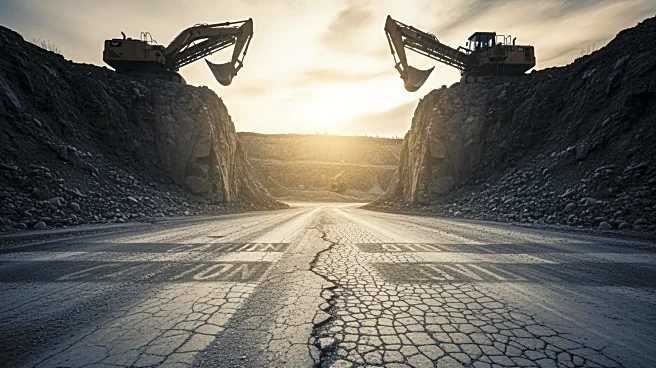What's Happening?
The Robert Rauschenberg Foundation is selling 22 acres of the artist's property on Captiva Island, Florida. The decision comes as the foundation faces increasing environmental challenges, including storm
damage and climate risks, which have made maintaining the property costly. The land, which has hosted a residency program for artists since 2012, is valued at $40 to $50 million. Local groups, including the Captiva Community Panel, are advocating for the land to be preserved as public space or a nature refuge. The Captiva Island Fire District has expressed interest in purchasing part of the property to develop facilities for emergency services.
Why It's Important?
The sale of the Captiva Island property raises concerns about potential development that could harm the fragile environment. The land's preservation is crucial for maintaining the island's ecological balance and providing public space in an area with limited access. The foundation's decision reflects broader challenges faced by organizations managing properties in environmentally sensitive areas. The outcome of this sale could set a precedent for how similar properties are managed in the future, balancing development pressures with conservation efforts.
What's Next?
The Captiva Island Fire District and local investors are exploring options to purchase the land to prevent development. The foundation's decision will likely influence future conservation efforts and property management strategies in environmentally sensitive areas. Stakeholders, including conservation organizations and local residents, may continue to advocate for the land's preservation, potentially leading to negotiations with the foundation to ensure the property's ecological integrity is maintained.
Beyond the Headlines
The sale of the property highlights the tension between development and conservation in areas vulnerable to climate change. It underscores the need for sustainable management practices that prioritize environmental protection while accommodating community needs. The situation also reflects the broader impact of climate change on real estate and property management, prompting organizations to reassess their strategies in the face of increasing environmental risks.








